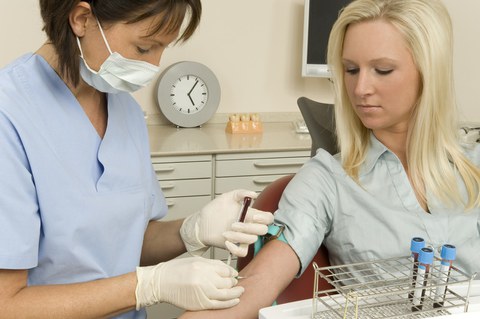Nov 15, 2023
Impactful research: 20 years of the Coordination Center for Clinical Studies Dresden
The Coordination Center for Clinical Studies (KKS) Dresden has been actively shaping the research landscape for two decades. The focus is on the safe conduct of clinical studies for drugs, medical devices and therapy optimization. During this time, the KKS has set standards within Dresden University Medicine that not only ensure the safety of study participants, but also enable reliable and groundbreaking results in medical research.
The international quality standard (GCP) was transposed into German law with the 12th amendment to the German Medicinal Products Act (AMG), which redefined the requirements and framework conditions for clinical research at universities. For physicians, who are not necessarily all "natural born" researchers, it has become increasingly complicated to get a study idea off the ground while taking all legal and regulatory requirements into account.
The Federal Ministry of Education and Research therefore initiated funding to establish permanent support structures at German universities. The funding application for Dresden - spearheaded by Prof. Gerhard Ehninger - was approved. It was November 28, 2003, when the Coordination Center for Clinical Studies Dresden saw the light of the day and has been actively promoting clinical research at Dresden University Medicine ever since.
20 years of experience enable KKS Dresden to competently support researchers in all processes of clinical research: Starting with the formulation of the scientific question, the statistical estimation of the number of study participants required, the cost calculation and assistance in obtaining financial resources through to the detailed description of the study procedure (trial protocol) and the formulation of the patient information / declaration of consent.
The clinical study can only be started once an Ethics Committee and the responsible authority (Federal Institute for Drugs and Medical Devices or Paul-Ehrlich-Institute) have given their approval on the basis of these documents. The KKS develops study-specific validated databases for the data management . It is always possible to trace who has entered which data and when, and if it complies with legal requirements. The KKS study management staff support the clinicians in conducting the studies and check (monitor) compliance with the protocol regulations and international quality standards in the participating institutions.
The KKS Dresden developed the quality and risk management system for conducting clinical studies (with medicinal products or medical devices) at TU Dresden. Only then was it possible for TUD to assume sponsor responsibility for clinical studies conducted at University Medicine.
The nationwide establishment of the Coordination Centers for Clinical Studies (KKS or ZKS) promotes clinical research that is independent of the industry. Furthermore, the continuous qualification of staff working on studies by the KKS Dresden enables the competent and legally compliant participation of physicians in study projects of the pharmaceutical industry.
On the occasion of the 20th anniversary of the KKS Dresden, a public event will take place on
Thursday, November 23, 2023, beginning at 5:00 pm, in lecture theater 2 of the Medical Theoretical Center (MTZ, UKD Building 91), Fiedlerstraße 42, 01307 Dresden,
to which everyone is cordially invited. The KKS team will briefly summarize the past years with facts and figures and thank all internal and external partners for their cooperation over the past two decades.
Neurologist, author and radio columnist Dr. Magnus Heier has been invited to give the festive lecture. Topic: The deceived brain - why do pills have to be red and bitter, food lactose-free and wines as expensive as possible? Placebo/Nocebo - Voodoo in medical offices and brain research.
Why do expensive wines taste so good? Why do large tablets work better than medium-sized ones, but not nearly as well as injections? How did Morbus Mohl (Mohl's disease, colloquial term for hypochondria) force Germans into doctors' surgeries for exactly 40 years? Why do fewer and fewer people tolerate lactose, gluten and cell phone radiation? And finally: What does back pain have to do with the head and how can it be cured?
It's all about the well-known placebo effect: when a drug works even though it has no active ingredient. When an operation cures afflictions even though only a skin incision was made. The placebo effect describes the fulfillment of a positive expectation. But it also works the other way around: Fears about medicine are also fulfilled! This effect has also been known for a long time: Nocebo - "I will do harm".
And this brings consequences - for clinical research, for doctors in their practices and for patients with the patient information leaflet in their hands.
In order to plan the event in advance, please register for participation by email () by November 19, 2023.
Contact:
TUD Dresden University of Technology
Faculty of Medicine Carl Gustav Carus
Coordination Center for Clinical Studies Dresden
Tel.: +49 351 458-5160
Web www.kksdresden.de

